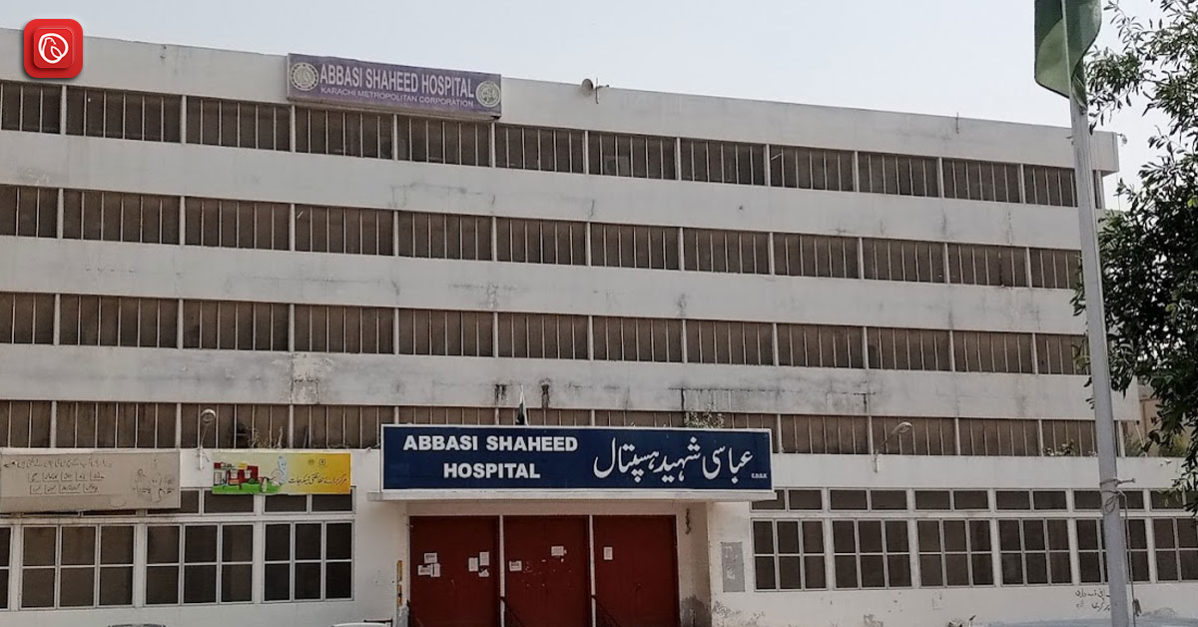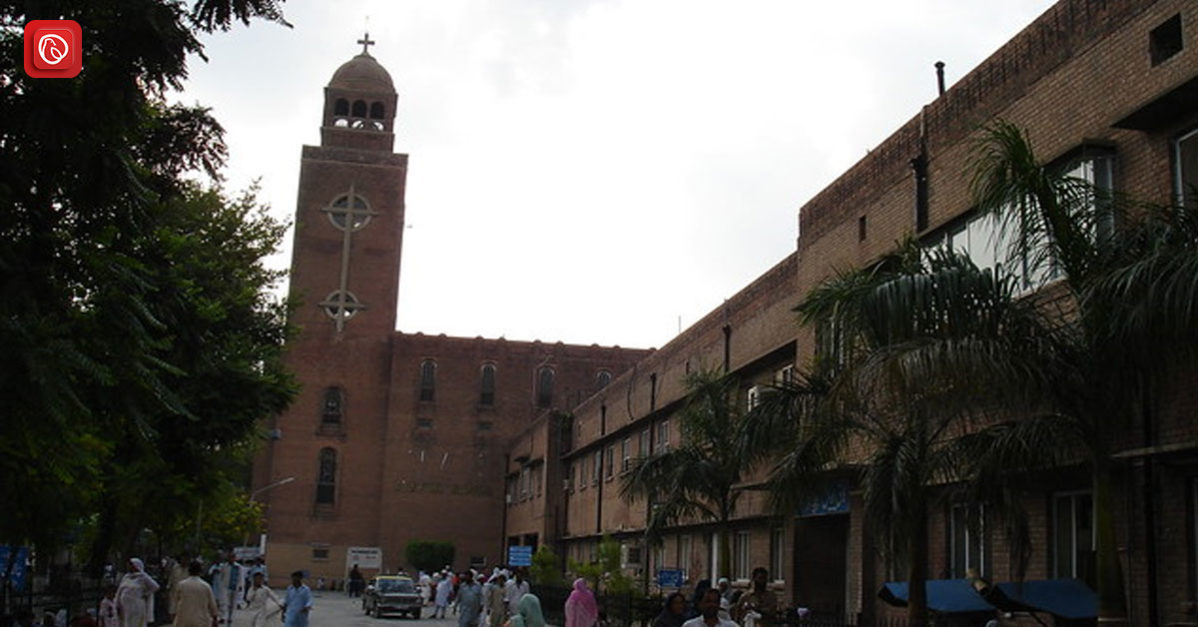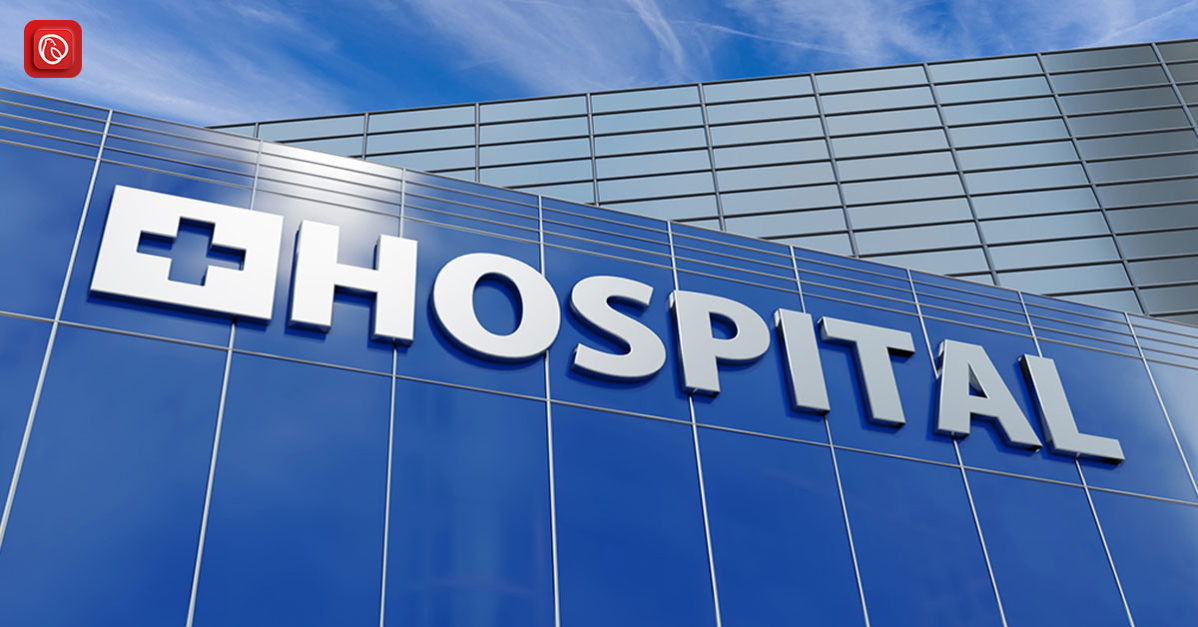Abbasi Shaheed Hospital, located in the Paposh Nagar neighbourhood of Nazimabad, Karachi, is one of the largest and most prominent public sector hospitals in Sindh, Pakistan. Established with the mission to provide comprehensive medical care and to serve as a leading teaching hospital, Abbasi Shaheed Hospital plays a critical role in the healthcare landscape of Karachi.
In this blog, Graana.com delves into the hospital’s history, facilities, educational significance, patient care services, community impact, and future prospects.
Historical Background
Abbasi Shaheed Hospital was inaugurated in 1974 as part of the Karachi Metropolitan Corporation’s initiative to enhance public healthcare infrastructure. Named after Shaheed Hakim Muhammad Saeed, a prominent Pakistani philanthropist, the hospital was established to address the growing medical needs of Karachi’s burgeoning population. Moreover, over the decades, the hospital has expanded its services and facilities, becoming a cornerstone of public healthcare in the region.
Location and Accessibility
Situated in the densely populated area of Paposh Nagar in Nazimabad, Abbasi Shaheed Hospital is easily accessible to residents of Karachi. The hospital’s central location ensures that it serves a large catchment area, providing medical care to people from various socio-economic backgrounds. Furthermore, the proximity to major roads and public transport networks, including buses and rickshaws, enhances accessibility for patients and staff alike.
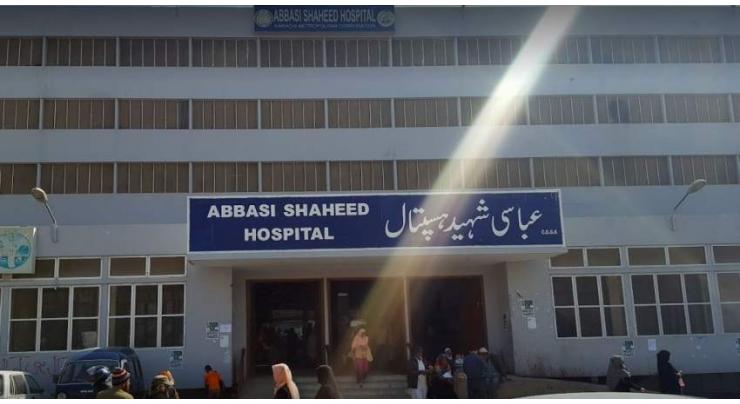
Facilities and Services
Abbasi Shaheed Hospital is equipped with a wide range of medical facilities and services designed to cater to diverse healthcare needs. Some of the key facilities include:
Emergency Services
The hospital operates a 24/7 emergency department, handling a high volume of patients with varying degrees of medical emergencies. The emergency department is staffed with experienced medical professionals trained to provide immediate and effective care.
Outpatient Department (OPD)
The OPD at Abbasi Shaheed Hospital offers consultations across various specialities, including internal medicine, paediatrics, obstetrics and gynaecology, surgery, and more. Patients can access these services through a structured appointment system, ensuring efficient management of patient flow.
Inpatient Services
The hospital has multiple wards and private rooms for inpatient care, accommodating patients who require extended medical treatment. The wards are organised based on specialities, providing focused care for specific medical conditions.
Surgical Services
Abbasi Shaheed Hospital boasts well-equipped operating theatres and surgical units, offering a wide range of surgical procedures. The surgical department handles elective surgeries, emergency surgeries, and specialised operations.
Diagnostic Services
The hospital’s diagnostic facilities include advanced imaging services such as X-rays, ultrasounds, and CT scans, as well as laboratory services for various tests and analyses. These diagnostic tools are essential for accurate diagnosis and effective treatment planning.
Maternity and Child Care
The hospital has a dedicated maternity and childcare unit, providing comprehensive services from prenatal care to postnatal care. The unit is equipped to handle high-risk pregnancies and neonatal care, ensuring the health and well-being of both mothers and infants.
Specialised Clinics
Abbasi Shaheed Hospital runs several specialised clinics, including cardiology, nephrology, dermatology, and neurology, among others. These clinics offer targeted medical care for chronic and complex conditions.
Educational Significance
As a teaching hospital, Abbasi Shaheed Hospital plays a crucial role in medical education and training. The hospital is affiliated with Karachi Medical and Dental College (KMDC), one of the leading medical colleges in Pakistan. The collaboration between the hospital and KMDC enhances the educational experience for medical students and trainees.
Clinical Training
Medical students from KMDC and other institutions undergo clinical training at Abbasi Shaheed Hospital. This hands-on experience is vital for developing practical skills and gaining exposure to a wide range of medical cases.
Residency Programmes
The hospital offers residency programmes in various medical specialities, providing postgraduate training to doctors. These programmes are designed to develop specialised skills and knowledge, preparing doctors for advanced medical practice.
Continuing Medical Education
Abbasi Shaheed Hospital regularly conducts CME programmes, workshops, and seminars for healthcare professionals. These educational activities ensure that medical staff stay updated with the latest advancements in medical science and practice.
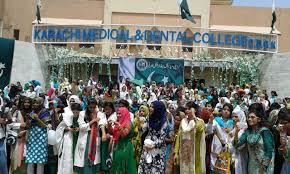
Research and Innovation
The hospital encourages research activities among its staff and students. Various research projects are undertaken to explore new medical treatments, improve patient care practices, and contribute to the broader field of medical science.
Patient Care Services
Patient care is at the heart of Abbasi Shaheed Hospital’s mission. The hospital is committed to providing high-quality medical care to all patients, regardless of their socio-economic status. Some of the key aspects of patient care services include:
Compassionate Care
The medical staff at Abbasi Shaheed Hospital, trained to provide compassionate and patient-centred care. The hospital’s ethos is to treat every patient with dignity, respect, and empathy.
Affordable Healthcare
As a public sector hospital, Abbasi Shaheed Hospital offers affordable healthcare services. The hospital provides subsidised treatment, making medical care accessible to low-income and underprivileged populations.
Comprehensive Care
The hospital adopts a holistic approach to patient care, addressing not only the medical needs but also the psychological and social aspects of health. Multidisciplinary teams work together to provide comprehensive care tailored to each patient’s needs.
Community Outreach
Moreover, Abbasi Shaheed Hospital actively engages in community outreach programmes, including health camps, awareness campaigns, and vaccination drives. These initiatives aim to promote public health and prevent diseases in the community.
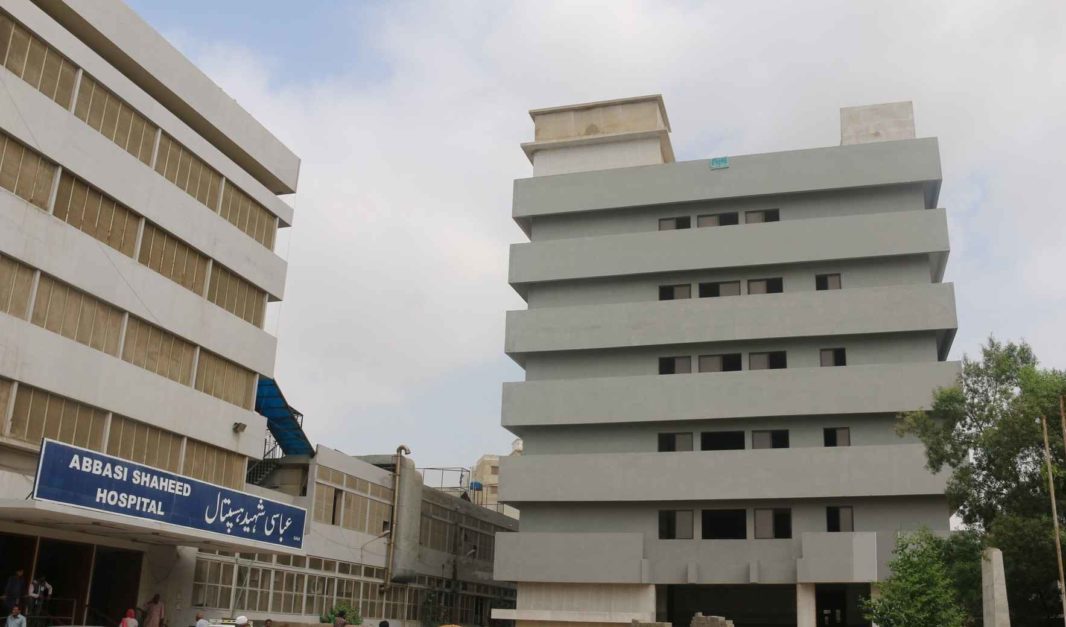
Community Impact
Abbasi Shaheed Hospital has a profound impact on the local community and beyond. The hospital’s services and initiatives contribute significantly to the well-being and health of the population.
Employment Opportunities
The hospital is a major employer in the region, providing jobs to a large number of healthcare professionals, administrative staff, and support personnel. This contributes to the economic stability of the community.
Health Education
Through various health education programmes, the hospital raises awareness about important health issues, preventive measures, and healthy lifestyles. These efforts empower the community to take charge of their health.
Public Health Initiatives
Abbasi Shaheed Hospital collaborates with government agencies and non-governmental organisations to implement public health initiatives. These initiatives address critical health challenges such as infectious diseases, maternal and child health, and non-communicable diseases.
Disaster Response
Additionally, the hospital plays a crucial role in disaster response and management. During emergencies such as natural disasters or disease outbreaks, Abbasi Shaheed Hospital provides essential medical services and support to affected populations.
Challenges and Opportunities
Despite its significant contributions, Abbasi Shaheed Hospital faces several challenges. However, these challenges also present opportunities for growth and improvement.
Resource Constraints
Like many public sector hospitals, Abbasi Shaheed Hospital operates under resource constraints. Limited funding and resources can impact the quality and availability of services. Addressing these constraints requires efficient resource management and increased funding from governmental and non-governmental sources.
Infrastructure Development
The hospital’s infrastructure needs continuous development and modernisation to keep up with the growing demand for services. Investments in infrastructure, including new buildings, advanced medical equipment, and technology, are essential for enhancing service delivery.
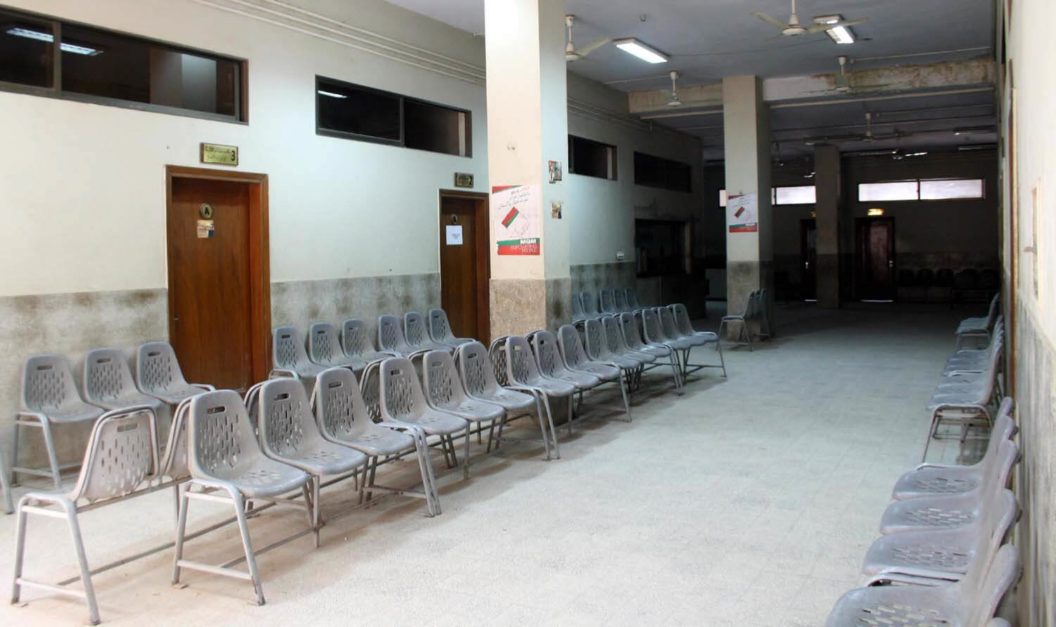
Staffing and Training
Ensuring an adequate number of trained healthcare professionals is a critical challenge. Continuous training and development programmes for medical and support staff are necessary to maintain high standards of care.
Patient Load Management
Managing the high patient load, particularly in the emergency department and outpatient clinics, is a significant challenge. Implementing efficient patient flow management systems and expanding facilities can help address this issue.
Integration of Technology
Additionally, embracing technological advancements can improve patient care and hospital management. Implementing electronic health records (EHR), telemedicine services, and other digital solutions can enhance the efficiency and quality of services.
Expansion of Services
Furthermore, expanding the range of medical services and specialities can help meet the diverse healthcare needs of the population. Introducing new departments and clinics, such as oncology, cardiology, and orthopaedics, can enhance the hospital’s service portfolio.
Research and Innovation
Moreover, strengthening research activities and fostering innovation can position the hospital as a leader in medical research. Collaborative research projects with national and international institutions can contribute to medical advancements and improved patient care practices.
Conclusion
The hospital stands as a beacon of hope and care in the heart of Karachi. Its commitment to providing quality healthcare, advancing medical education, and serving the community is unwavering. Despite facing challenges, the hospital continues to evolve and grow, driven by a mission to improve the health and well-being of the population.
Furthermore, as it looks to the future, it is poised to enhance its services, embrace innovation, and make a lasting impact on the healthcare landscape of Pakistan.
Frequently Asked Questions
Related FAQs
1. What services does Abbasi Shaheed Hospital offer?
The Hospital provides a comprehensive range of medical services, including emergency care, outpatient and inpatient services, surgical procedures, diagnostic services, maternity and childcare, and specialised clinics for various medical conditions.
2. How can I get to Abbasi Shaheed Hospital?
The Hospital is located in the Paposh Nagar neighbourhood of Nazimabad, Karachi. It is easily accessible via major roads and public transport, including buses and rickshaws. The hospital’s central location ensures that it is within reach of residents from various parts of the city.
3. Is Abbasi Shaheed Hospital affiliated with any medical college?
The Hospital, affiliated with Karachi Medical and Dental College (KMDC). This affiliation enhances the educational experience for medical students and trainees, providing them with hands-on clinical training and exposure to a wide range of medical cases.
4. Does Abbasi Shaheed Hospital offer emergency services?
Yes, the hospital operates a 24/7 emergency department, staffed with experienced medical professionals trained to handle a high volume of medical emergencies efficiently and effectively.
5. What kind of training and educational programmes are available at Abbasi Shaheed Hospital?
The Hospital offers clinical training for medical students, residency programmes in various specialities for postgraduate doctors, and continuing medical education (CME) programmes for healthcare professionals. The hospital also encourages research activities among its staff and students.
6. Are there any community outreach programmes conducted by Abbasi Shaheed?
Yes, the hospital actively engages in community outreach programmes, including health camps, awareness campaigns, and vaccination drives. These initiatives aim to promote public health and prevent diseases in the community.
7. How does Abbasi Shaheed Hospital contribute to the local community?
The hospital contributes to the local community by providing affordable healthcare services, offering employment opportunities, raising health awareness through education programmes, and participating in public health initiatives. It also plays a crucial role in disaster response and management.
8. What are the main challenges faced by Abbasi Shaheed Hospital?
Some of the main challenges include resource constraints, the need for infrastructure development, managing high patient load, ensuring adequate staffing and training, and integrating technology into healthcare services. Addressing these challenges requires strategic planning and investment.
9. How does Abbasi Shaheed Hospital ensure the quality of patient care?
The hospital, committed to providing compassionate, patient-centred care. It offers affordable healthcare, adopts a holistic approach to patient care, and employs multidisciplinary teams to address the medical, psychological, and social aspects of health.
10. What are the future prospects for Abbasi Shaheed Hospital?
Future prospects for the hospital include expanding medical services, strengthening research and innovation, engaging in public-private partnerships, increasing community engagement, and implementing sustainability initiatives to improve operational efficiency and reduce environmental impact.
For more details, visit the Graana blog.
